Letter from the Editor: Celebrating 5 Years of Brain Waves
By: Kristen Alexander, MPH, MPS
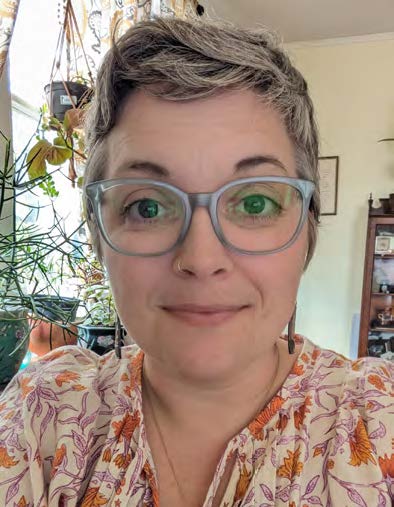
Program Manager
IDHI Brain Injury Program
This issue completes FIVE years of Brain Waves Newsletter going to over 1,500 people across the state! That’s 20 survivor stories published and countless resources shared. The Brain Injury Program is in a major point of growth, and I wanted to take a moment to share a little information about that. This fall, our team is growing by FOUR new staff members. That is almost double the size of our current team!
As part of our growth, we will be rolling out new programs, including group music therapy and an art program in the spring, in partnership with the Arkansas Museum of Fine Arts.
We are beyond excited to continue making Arkansas a better place to live with brain injuries, and we hope you will join us as much as you can. We have several ways for you to keep in touch with our team and our work, so I want to share them here:
- Visit our resource website to learn about everything we offer! http://idhi.uams.edu/brain-injury-program
- Sign up for our free mailing list. If you are reading this issue in an office or clinic and want to get your own copies, visit the website listed in number 1, and click the “order form” button at the top. Order a copy of Brain Waves and be sure to say “yes” to the mailing list question.
- Attend our quarterly “Brain Injury Program Presents” meetings. These are topic-based presentations where expert speakers share skills and knowledge about living with a brain injury. You can find the workshops on our website. If you sign up for our emails, we will email you for all events
- Apply to join our Brain Injury Council. This is a great way to “pay it forward” and help others living with a brain injury. https://idhi.uams.edu/brain-injury-program/about-us/ar-brain-injury-council/abicapplication/
- Read the resources inside this newsletter. New resources pop up often, and we always try to share them here!
I want to thank all of our readers. It has been such a privilege to share with you for the past five years. My hope is that each of you have found something helpful in every issue. I would love to hear about what you like or dislike and what you would find helpful in future issues. Feel free to email your thoughts to me at kalexander@uams.edu.
Want to suggest a topic? Email us at braininjury@uams.edu.
Survivor Story: Michael Jackson
By: Dianne Campbell
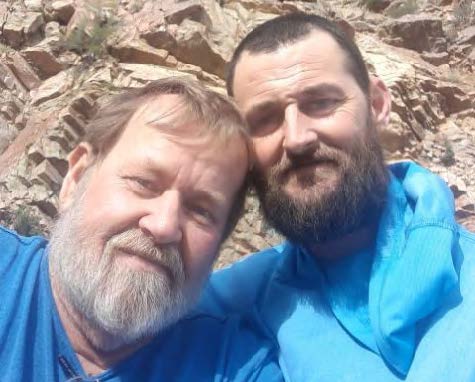
When I told a fellow team member that I was going to interview Mr. Michael Jackson for the Brain Waves survivor feature story, she squealed, “That Michael Jackson?” I replied, “Yes, that Michael S. Jackson.” I remember thinking the same thing when I first met Michael last year during our virtual 12-week brain injury workshop. Several people at the workshop commented on his name, and I mentioned that I wondered how often he got asked about his name. Michael just laughed. His laugh told me volumes.
Some would describe Michael as a “gentle giant” standing at six feet and seven inches tall. After the playful reference about his shared name with the famous pop culture icon, I decided not to ask if he played basketball in our interview. We started our interview with the usual small talk, and then got into a serious discussion about his head injury and the road he has traveled since the accident.
Michael lives in north central Arkansas in a rural area of the state known for its beautiful natural surroundings. Michael enjoys spending time outdoors and fishing. I asked if he was a hunter, too, and he said he was. “But my wife won’t let me have a gun”, he said. “She is an animal lover”.
Michael’s son Ethan is 9, and lives in eastern Arkansas with family, and Michael sees him every other weekend. I asked what he and his son enjoy doing together and Michael said his son is into solving math problems, a subject that Michael finds challenging.
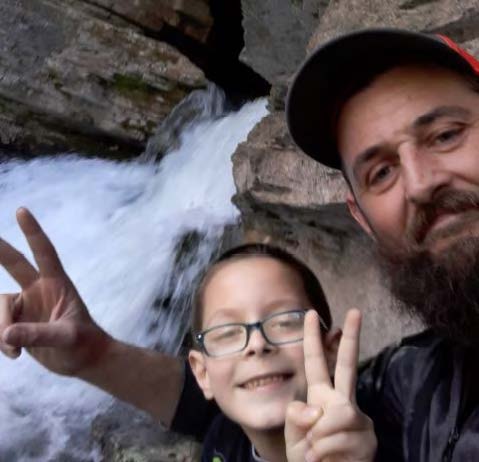
We laughed about math being hard and I told Michael that once my son hit fourth grade, I could no longer help him with his math homework. Michael agreed. That’s where our math expertise stops.
Before his injury, Michael worked as a heavy machinery operator and sustained his injury while operating an industrial wood chipper used for making wood chips for smoking and curing meat. Michael said he stopped the machine and climbed up into the cylinder to clear it out. He slipped while he was on the machine and came down “hard on my head.” Michael said he was about four feet up and add another 6’7″ due to his height, totaling around a 10-foot fall.
Michael remembered most of the events surrounding the fall but lost consciousness upon reaching the hospital and has no recollection of that initial period.
At the time of his fall, Michael experienced temporary blindness and then was able to see outlines of people and objects. Then, he said, he remembers his “guardian angel, a small voice in my head” urging him to tell the people around him to get him to the hospital. Michael said he kept repeating, “get me to the hospital.” He said he felt a frantic rush and need to get to the hospital quickly. He said even waiting on an ambulance did not feel fast enough. Michael recalls being loaded into a vehicle and reaching the hospital before losing consciousness again. At some point, he was transferred from his local hospital to UAMS, although he doesn’t remember much about it.
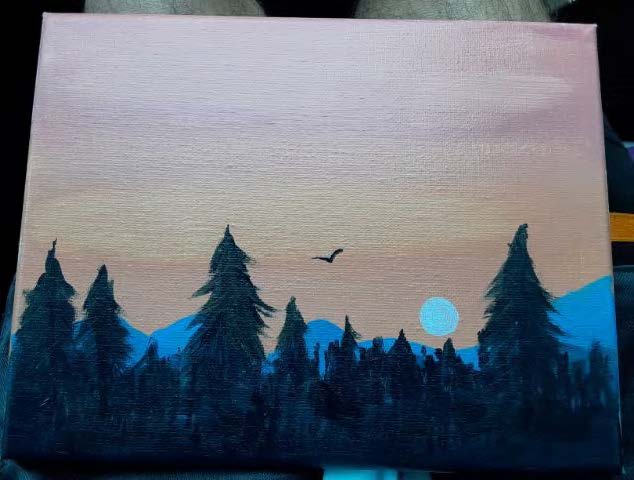
Following his acute hospital stay, Michael returned home and received outpatient speech therapy twice a week. He attributes much of his progress thus far to his speech therapist. Michael said he also has been diagnosed with PTSD, post-traumatic stress disorder, and sees a behavioral health therapist on a regular basis.
There is an interesting relationship between PTSD and TBIs. Sometimes the symptoms a TBI survivor are a result of the TBI and sometimes they might be the result of experiencing PTSD. Or, to put it another way, sometimes people who had TBI also experience PTSD depending on the nature of the accident or trauma that caused the head injury. It might be difficult to know whether the symptom you are having is the result of the TBI or the result of PTSD. If this is
a concern, consult a professional to help you explore this.
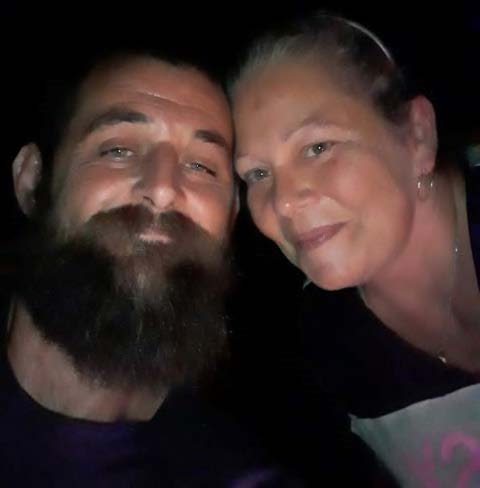
Michael said he now draws strength from his family who he describes as very supportive of his journey. Michael’s father is living with him and his wife, “until he finds a place of his own,” Michael added. Michael described that he and his wife’s roles have switched since the injury. “She goes to work, and I stay home”, a change that did not appear to bother Michael. Michael said his wife works at Walmart and is doing well there. “They like her a lot,” he said.
Michael says he tries to stay as positive as he can, and that the key for him
moving forward is the “acceptance” of his situation. We discussed that
arriving at “acceptance” is not an easy task. Michael acknowledged that reaching acceptance has been a significant milestone in his recovery
journey.
Want to share your story? Email us at braininjury@uams.edu.
Free Recovery Sources
TBI Recovery Workshop
Are you ready to take the next step in your brain injury recovery? Or maybe you feel stalled out or stuck? Work with a neuropsychologist and other content experts in our free 12-week brain injury recovery workshop! This class will help you get to know the “new you” and teach you how to live well with a brain injury. Here are some of the topics addressed:
- Improved Thinking Skills (Cognitive Rehabilitation)
- Adjustment to Injury
- Community Support
- Pain Management
- Mental Health, including PTSD
- Healthy Relationships
- Diet and Exercise
- Physical Therapy
- Yoga and Meditation!
The next group will start in the spring! The upcoming virtual group will meet online for a few hours each week for 14 weeks, starting in March. To sign up, scan the QR code above with your phone, or use this link: https://wkf.ms/458KQ0s. Once you sign up, we will reach out with more information.
Conway Brain Injury Community
Faculty and students from the University of Central Arkansas (UCA) offer a free weekly treatment program for people living with brain injury. The goal is to improve the members’ occupational performance and overall health and well-being.
Each week’s session includes 3 parts:
- Arm ability training, which promotes hand, wrist, elbow, and shoulder recovery for clients who have mild to moderate loss of function in their upper extremities
- Support group, to meet with peers and strengthen community
- Health coaching to teach health skills and assist with setting and meeting goals
To join, contact Jordan Wylie at jwylie2@cub.uca.edu or (870) 833-0809.
Resource Highlight
UAMS Speech and Hearing Clinic
Now accepting new patients of all ages
The UAMS Speech and Hearing Clinic offers free and low-cost services, provided by graduate students. Clinics are supervised by licensed and ASHA-certified faculty.
Services include:
- Hearing tests
- Hearing aid and assistive listening device selection and fitting
- Tinnitus treatment
- Auditory processing evaluations
- Custom earplugs and swim plugs
- Speech evaluation & treatment of voice, fluency, and articulation
- Language evaluation and treatment for children & adults
- Group therapy for autism, stroke, and gender affirmation
Based on evaluation results, student clinicians work with clients, parents, and families to develop affordable and appropriate treatment plans.
To schedule an appointment or for more information, call 501-320-7300.
CLINIC LOCATION: 4021 West 8th St. Little Rock, AR 72204
Located just south of I-630 at the Cedar and Pine exit (old KARN Building).
Free parking available as well as wheelchair ramp and accessible entrance.
Want to be a brain injury advocate?
Apply to join our Brain Injury Council!
Be a voice for brain injury in Arkansas. Read more and apply here: http://bit.ly/joinabic
Social Security Pointers: Disability – Part of the Equity Equation
By Tonya Cater, Social Security Public Affairs Specialist
People with disabilities play an important role in a diverse and inclusive workforce. We would like to tell you about Amy and her path to financial independence through work.
Meet Amy
Amy has a disability that affects her speech, learning, and social interactions. When she was ready to find a path to financial independence through work, Amy turned to her State Vocational Rehabilitation (VR) agency for help (here, it is called Arkansas Rehabilitation Services). Amy’s VR counselor told her about Social Security’s Ticket to Work (Ticket) Program.
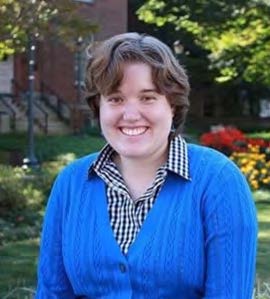
The Ticket Program helps people with disabilities who want to work. Any adults ages 18 through 64 who receive Social Security disability benefits or Supplemental Security Income (SSI) can qualify. Service providers offer free employment support services.
Amy had questions about how working could affect her benefits. Her state VR counselor connected her with Full Circle Employment Solutions, which is an Employment Network (EN) with benefits counselors who could answer her questions. Amy’s benefits counselor also told her about work incentives. Work incentives make it easier for adults with disabilities to build job skills and gain work experience without losing benefits.
With a better understanding of the programs, Amy was ready to explore some job options. She pursued an internship with Project SEARCH, a training program for young adults with developmental disabilities. Through Project SEARCH, Amy found an internship that led to a permanent position with her local government.
Amy earned her way to financial independence, and no longer receives SSI. Now, she’s a union member, receives benefits through her job, and enjoys the security and stability that comes with full-time employment. She’s grateful for the support she received through the Ticket Program and looks forward to building the future she always hoped for.
“This job makes me feel needed and welcomed,” she said. “I have learned about what motivates me and how to keep going, even when things get hard.”
Learn More
To learn more about the Ticket Program, visit choosework.ssa.gov where you also can see a list of service providers. Or you can call the Ticket to Work Help Line at 1-866-968-7842 or 1-866-833-2967 (TTY), Monday through Friday, 8 a.m. to 8 p.m. ET, and ask for a list of service providers.
You can also learn more by registering for a free, online Work Incentives Seminar Event webinar at choosework.ssa.gov/wise. Or you can text TICKET to 474747 to receive Ticket Program texts. Standard messaging rates may apply, and you can opt out at any time.
Please share this information with friends and family who may need it.
Please be aware that past newsletter issues may contain outdated information. For the latest updates on resources and events, visit our website or contact us at braininjury@uams.edu with any questions.
